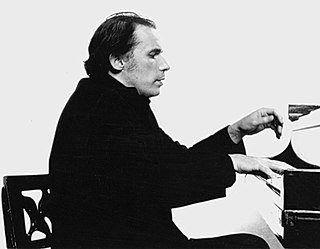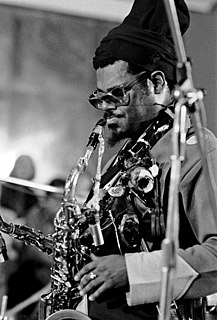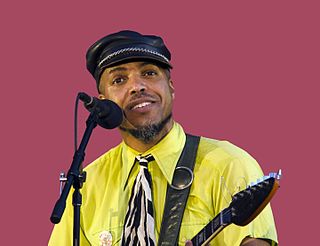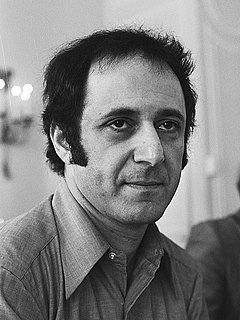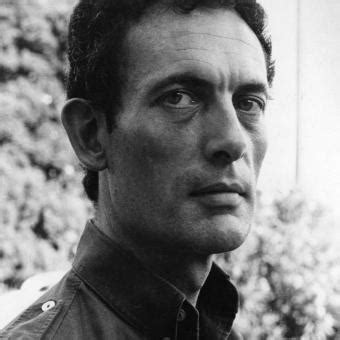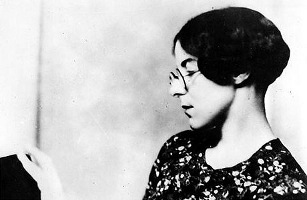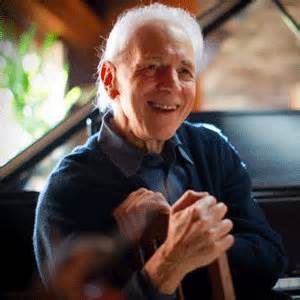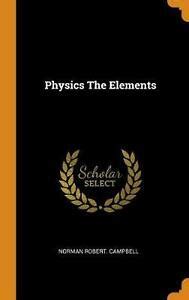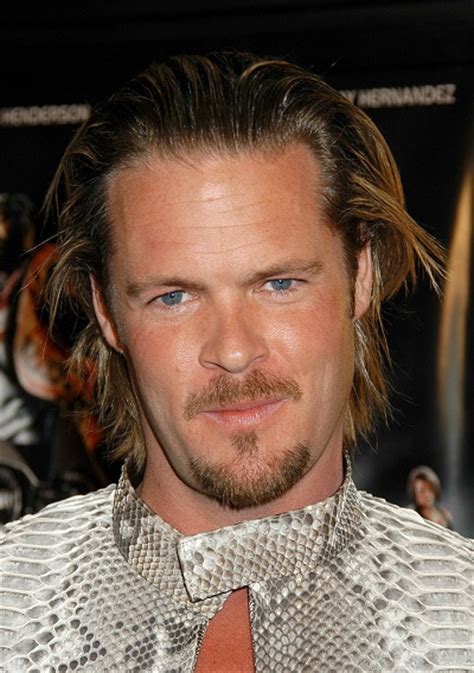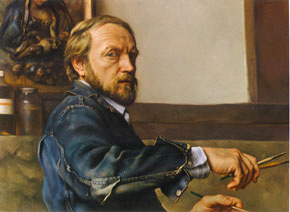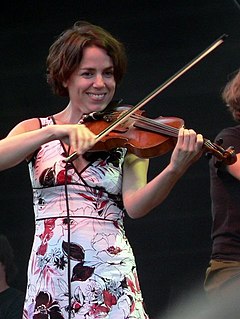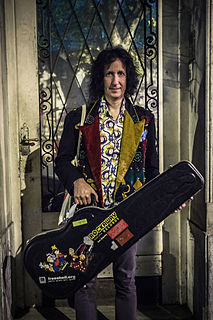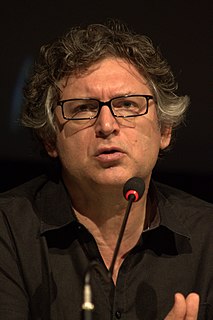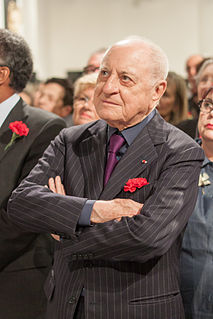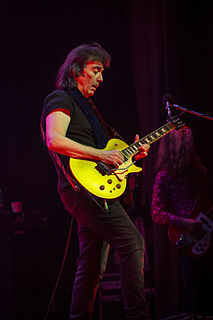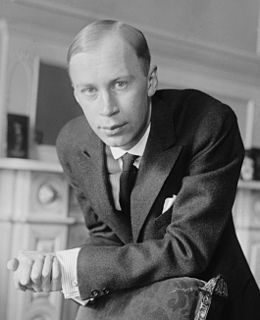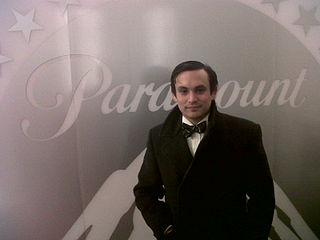Top 300 Bach Quotes & Sayings - Page 5
Explore popular Bach quotes.
Last updated on April 15, 2025.
I love the early sonatas; I love the early Mozart, period. I'm really fond of that moment when he was either emulating Haydn or Carl Philipp Emanuel Bach or anybody but himself. The moment he found himself, as conventional wisdom would have it, at the age of 18 or 19 or 20, I stop being so interested in him.
You don't see the European classical musicians allowing the music of Bach, Brahms, or Beethoven to become extinct. That music has gone on for centuries and centuries. We have the same obligation. Why do we have to become so 'hip' that we can say, 'Bebop is square,' or "New Orleans is square'? This, to me, is a shame.
I'm fortunate in that I've grown up in a worshipping tradition which is quite rich musically (and music is very important to me) and has a wonderful resource of hymns from all sorts of different parts of the Church... and to go to church and be able to sing that stuff and listen to a Bach motet or indeed some charismatic choruses.
It's very hard to make grand, romantic gestures on a mandolin, and there are times, particularly when playing Bach, that you long for just a little more sustain. But for better or worse it's my voice, and the trade-off comes with increased intimacy. It's like you're beckoning the audience closer: 'C'mere, I've got something to tell ya.'
Gorgeous, amazing things come into our lives when we are paying attention: mangoes, grandnieces, Bach, ponds. This happens more often when we have as little expectation as possible. If you say, "Well, that's pretty much what I thought I'd see," you are in trouble. At that point you have to ask yourself why you are even here. [...] Astonishing material and revelation appear in our lives all the time. Let it be. Unto us, so much is given. We just have to be open for business.
Everyone accepts the abstraction of Bach. My work aspires to the same kind of abstraction, which is so engaging that you're distracted from asking about what it means. So many paintings have hidden meanings or need wall texts, but my work is not in that category. Once it's in the viewer's eyes my job will be judged on whether or not it is engaging and pulls you in to a kind of intelligence or poetic something going on there that makes it sustainable to look at.
Music is for people to hear, I can't think of anything else it could be for. Unless you believe in God, and I don't think God really would be all that interested. I'm sure when Bach wrote for the greater glory of God, he really didn't think that God was going to sit down at breakfast and listen to his cantatas. I think he meant for higher purposes than earning a living.
As you read a book word by word and page by page, you participate in its creation, just as a cellist playing a Bach suite participates, note by note, in the creation, the coming-to-be, the existence, of the music. And, as you read and re-read, the book of course participates in the creation of you, your thoughts and feelings, the size and temper of your soul.
You are an instrument of God. Don't leave the instrument sitting in its case, my son. Play! Leave no part of your instrument unexplored. Why settle for 'Three Blind Mice' when you can can play the 'Gloria'? No, not Bach's 'Gloria.' Yours! Your 'Gloria' lives within you. The greatest sin is not finding it, ignoring what God made possible in you.
I wish you could see the two cats drowsing side by side in a Victorian nursing chair, their paws, their ears, their tails complementarily adjusted, their blue eyes blinking open on a single thought of when I shall remember it's their supper time. They might have been composed by Bach for two flutes.
The music of the supreme architect, Bach, is filled with pages of discursive argument and rumination, glorifying the nameless whole by a rich embroidery of passages which lead everywhere and nowhere. The ideas are presented, stood on their head, dissolved into fragments, until the ultimate message becomes the connections of all things great and small, a chain of being which cannot be secured until the last note is in place.
The neo-conservative critics of leftist critics of mass culture ridicule the protest against Bach as background music in the kitchen, against Plato and Hegel, Shelley and Baudelaire, Marx and Freud in the drugstore. Instead, they insist on recognition of the fact that the classics have left the mausoleum and come to life again, that people are just so much more educated. True, but coming to life as classics, they come to life as other than themselves; they are deprived of their antagonistic force, of the estrangement which was the very dimension of their truth.
Science would not be what it is if there had not been a Galileo, a Newton or a Lavoisier, any more than music would be what it is if Bach, Beethoven and Wagner had never lived. The world as we know it is the product of its geniuses-and there may be evil as well as beneficent genius-and to deny that fact, is to stultify all history, whether it be that of the intellectual or the economic world.
When the artist is truly the servant of the work, the work is better than the artist; Shakespeare knew how to listen to his work, and so he often wrote better than he could write; Bach composed more deeply, more truly than he knew, Rembrandt's brush put more of the human spirit on canvas than Rembrandt could comprehend. When the work takes over, then the artist is enabled to get out of the way, not to interfere. When the work takes over, then the artist listens.
When we come to understand architecture as the essential nature of all harmonious structure we will see that it is the architecture of music that inspired Bach and Beethoven, the architecture of painting that is inspiring Picasso as it inspired Velasquez, that it is the architecture of life itself that is the inspiration of the great poets and philosophers.
There is a field where all wonderful perfections of microscope and telescope fail, all exquisite niceties of weights and measures, as well as that which is behind them, the keen and driving power of the mind. No facts however indubitably detected, no effort of reason however magnificently maintained, can prove that Bach's music is beautiful.
There are things I read doing research, and there are certain books and writers I just love to read. There are books of Brian Morten's that I love, for instance. There's a wonderful book by an Australian writer named Helen Garner called 'The Children's Bach,' and I just love the way she uses language in it.
The prerequisite of contrapuntal art, more conspicuous in the work of Bach than in that of any other composer, is an ability to conceive a priori of melodic identities which when transposed, inverted, made retrograde, or transformed rhythmically will yet exhibit, in conjunction with the original subject matter, some entirely new but completely harmonious profile.
Einstein's space is no closer to reality than Van Gogh's sky . The glory of science is not in a truth more absolute than the truth of Bach or Tolstoy, but in the act of creation itself. The scientist's discoveries impose his own order on chaos, as the composer or painter imposes his; an order that always refers to limited aspects of reality, and is based on the observer's frame of reference, which differs from period to period as a Rembrant nude differs from a nude by Manet.
So Bach, Beethoven, Duke Ellington, Thelonius Monk, these are all people who would sort of rearrange or take riffs from people. Same thing with rock, if you look at the Rolling Stones doing a cover of Otis Redding or you know if you look at literature James Joyce is pulling fragments of text from other people.
I think of music a lot when I paint. The theme of it to a degree is music. So instead of literally putting in music or literally putting in a musical instrument, I use only a hint of the instrument, but the brocaded pattern is like a line of Bach because of its order and the leaves going up are like passages from Vivaldi, and the emphasis on drapery is where the sound comes.
The difference between the Parthenon and the World Trade Center, between a French wine glass and a German beer mug, between Bach and John Philip Sousa, between Sophocles and Shakespeare, between a bicycle and a horse, though explicable by historical moment, necessity, and destiny, is before all a difference of imagination.
I love the Bach Prelude No. 2 in C Minor and had that stuck in my head: why don't I put this on Imaginaryland? So I brought it to my friend Tom Grimley who recorded That Dog's first record. I played him all my a cappella pieces, and he said, "P, you should really make a record, it would be great! You can record it at my studio and I'll put it out!"
See beauty in those unexpected places. (she asked herself how people could let Bach be background noise.) See the opportunity in what looks like inconvenience. (she steered clear of the traffic jam and went to the bakery she's been meaning to stop at.) She embraces the undeclared possibility in what seems like just another ordinary day. (her friend is scheduled for cancer surgery and suddenly everything around her seems so very precious.)
If an artist may say nothing except what he has invented by his own sole efforts, it stands to reason he will be poor in ideas. If he could take what he wants wherever he could find it, as Euripides and Dante and Michelangelo and Shakespeare and Bach were free, his larder would always be full, and his cookery might be worth tasting.
It's a huge Carthusian monastery, stuck down between rocks and sea, where you may imagine me, without white gloves or hair curling, as pale as ever, in a cell with such doors as Paris never had for gates. The cell is the shape of a tall coffin, with an enormous dusty vaulting, a small window... Bach, my scrawls and waste paper - silence - you could scream - there would still be silence. Indeed, I write to you from a strange place.
The great composer does not set to work because he is inspired, but becomes inspired because he is working. Beethoven, Wagner, Bach and Mozart settled down day after day to the job in hand with as much regularity as an accountant settles down each day to his figures. They didn't waste time waiting for inspiration.
As far as piano players are concerned, Oscar Peterson is my very favorite. I also like McCoy Tyner. I think that the big jazz stars, both now and in the past...how shall I say it? These guys are as great as Bach, Beethoven; all of them. People don't know it yet. If jazz survives and is put on a pedestal as an art form, the same as classical music has been through the years, a hundred years from now the kids will know who they were, with that kind of respect.
If I am against the condition of the world it is not because I am a moralist, it is because I want to laugh more. I don't say that God is one grand laugh: I say that you've got to laugh hard before you can get anywhere near God. My whole aim in life is to get near to God, that is, to get nearer to myself. That's why it doesn't matter to me what road I take. But music is very important. Music is a tonic for the pineal gland. Music isn't Bach or Beethoven; music is the can opener of the soul. It makes you terribly quiet inside, makes you aware that there's a roof to your being.
I'm definitely not a laptop/midi/abelton guy. But there is a lot of music I like. I really like Bach organ music. I really like Chopin piano music. I really like Wendy Carlo's electronic music. I really like Miles Davis and John Mclaughlin jazz style. So I'm not only an old-school rocker, but I have to admit that I'm going to be listening to The Doors, Rolling Stones, Iggy Pop, David Bowie and Bob Dylan many times a week.
I love Marcel Proust, but I leave him to his nostalgia. I don't approach art the way most people do. I don't get into Proust by imagining that I am Charlus or whoever. It's the same thing in painting - I try to look at it objectively. There's no pathos in that. It's like Bach's "Goldberg Variations." They have to be approached with a scalpel.
My father was able to play a number of musical instruments and I fell in love with classical music in my teens and I allowed it to influence me. I like to think I took and still do from classical music and various techniques, I have made classical albums and recorded seven different pieces of Bach on different albums and its all music too me.
Bach in general was so good with the violin. He just finds the genius way around his music on the instrument. When you think about the fact that the instrument has changed significantly since he wrote for it and his music still really works, it's brilliant. He was definitely ahead of his time. There's something so satisfying about his music. It's beautifully organized and emotional at the same time. I find it highly exciting.
For the past eighty years I have started each day in the same manner. It is not a mechanical routine, but something essential to my daily life. I go to the piano, and play two preludes and fugues of Bach. I cannot think of doing otherwise. It is a sort of benediction on the house. But that is not its only meaning for me. It is a rediscovery of the world of which I have the joy of being a part. It fills me with awareness of the wonder of life, with a feeling of the incredible marvel of being a human being.
Often, I could not find the range of emotions in classical music which I found in the The Rolling Stones and Hendrix. Listening to Bach, I found a deep spirituality and felt elevated above the human level. Yet the feeling and emotions attached to popular music speak to us far more personally, and I couldn't leave that behind.
The Besicovitch style is architectural. He builds out of simply elements a delicate and complicated architectural structure, usually with a hierarchical plan, and then, when the building is finished, the completed structure leads by simple arguments to an unexpected conclusion. Every Besicovitch proof is a work of art, as carefully constructed as a Bach fugue.
I think that if I were required to spend the rest of my life on a desert island, and to listen to or play the music of any one composer during all that time, that composer would almost certainly be Bach. I really can’t think of any other music which is so all-encompassing, which moves me so deeply and so consistently, and which, to use a rather imprecise word, is valuable beyond all of its skill and brilliance for something more meaningful than that — its humanity.
The author's conviction on this day of New Year is that music begins to atrophy when it departs too far from the dance; that poetry begins to atrophy when it gets too far from music; but this must not be taken as implying that all good music is dance music or all poetry lyric. Bach and Mozart are never too far from physical movement.
If there's one thing I feel very strongly about, it's that there shouldn't be a distinction between pianists who play Ligeti and those who play Chopin. It might seem that they involve different skill sets, but I don't think that's true: whether playing Ives or Bach or Beethoven, you must bring the same imagination, the same sensitivity, and an ability to deal with same kinds of musical problems. The method behind my madness, anyway, is to keep plugging away at this idea.
